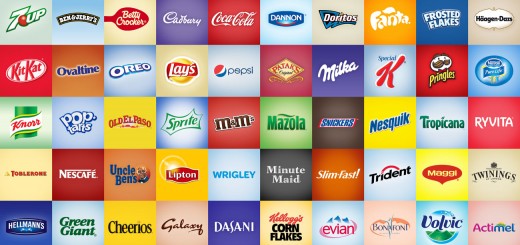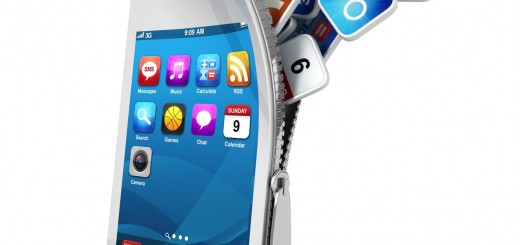Zuckerberg in India: On connectivity, local languages & internet relevance
If there was one word that would surmise Mark Zuckerberg’s passion and focus areas, it is ‘connectivity’. When Facebook positions itself as a platform that is connecting people in the world, it literally means the world and Internet.org was a step in that direction that the social network, in collaboration with other players, began work on in July of 2013. Since then, much has been done in terms of identifying barriers and ways to knockdown those barriers that would connect the next five billion.
India is a market of importance in this respect for Facebook. This was evident not only in the fact that the inaugural Internet.org Summit is being hosted in India where the Facebook Co-Founder and CEO was the keynote speaker but also in the fact that he is keen to meet Prime Minister Narendra Modi to understand how Facebook can help in the PM’s vision of a ‘Digital India’.
Reiterating this, Mr Zuckerberg pointed out, “When the benefits of being connected are shared with the whole society, we make leaps. Throughout history, India has shown the ability to make such leaps. Whether it was the Green Revolution or the embracing of the computer industry or being the first country in Asia that has sent a probe to Mars, which is a huge technological achievement, India has embraced science, research and education. The next generation now has the opportunity to define the future and bring India to the world and the world to India. Embracing the internet to improve people’s lives is critical in that.”
Connectivity, not a privilege of the rich
Mr Zuckerberg perhaps set the tone of the conversation when he said that connectivity is not a privilege of the rich, and should be shared with everyone. He observed, “Historically, inventions that have changed the world, changed our lives and society have done so because they help connect people. When people are connected, they can accomplish anything –from education, healthcare information to knowing about job opportunities and being connected with people they love. But technology doesn’t progress itself.”
And this is where the responsibility on governments and the likes of companies such as Facebook comes in. He reminded that in India around 243 million people were connected to the internet, of which more than 100 million people are on Facebook, but it also implied that there are a billion people in the country who don’t have access, and that essentially this meant that India and the world is “robbed of the ideas and views that these people have”.
While Mr Zuckerberg is convinced that it is only a matter of time before everyone is connected, the task at hand for the companies and organisations that can make a difference is to identify how this can be achieved.
Physical, economical & social barriers to connectivity
In the various researches that Internet.org has commissioned and worked on, barriers to connectivity can be divided in three broad structures – the physical barriers that completely restrict or limit traditional ways of connectivity in certain markets leading to no or poor network connections, economic barriers that imply the high costs of data but according to Mr Zuckerberg, the biggest barriers are social.
“The biggest barrier is not knowing why you need the internet,” said Mr Zuckerberg, and added, “I think we need a 911 or a 100 equivalent for internet, which is free access to basic services such as health, education, job or such information, that can make people aware on how the internet can help them or what are the different areas where it can be beneficial to them.”
To that effect, Facebook is working with operators in a few countries like Indonesia, Philippines amongst others to provide such a free service. The Internet.org app is designed to that effect and while it is available in a very select set of countries at present, the intention is to take it across various markets.
An Internet.org Lab, in partnership with Ericsson, one of the members of Internet.org coalition, has also been put together for people to test apps. A Connectivity Lab has been established to explore how technology such as satellites and solar powered planes can be used to beam down internet in media dark areas where traditional tech has not been cost effective to deploy. “We have also changed the way we build products to make more data efficient products for lower bandwidth or higher data costs. We have improved our Android app to make it 50 per cent faster, using half the data,” informed Mr Zuckerberg.
The one point that he stressed the most on was the availability of local language content in order to make the internet relevant to more people. “Over 80 per cent content today is in 10 languages only. India has 22 official languages and there isn’t a lot of content online in these languages. We need content, services, products and a good experience in languages that people speak and communicate in. I am proud that more than 65 per cent people use Facebook in a language other than English but there is still a long way to go in this,” he added.
Specific steps on way forward
Mr Zuckerberg used the opportunity of his address to announce a contest to drive development of new apps and services in local languages. An initial fund of USD 1 million is set up to help developers build scale and apps that would help farmers, migrant workers, students and women. Internet.org would be funding the apps that have the biggest impact for these set of people.
Also, FB Start would extend up to USD 40,000 in free tools to developers to build, grow and monetise their apps.
“If we can connect people in India and make a big impact here, we would not just be making an impact on India but all over the world because it would mean taking this rich culture, imagination and innovation to the rest of the world,” said Mr Zuckerberg, summing up the India opportunity.


